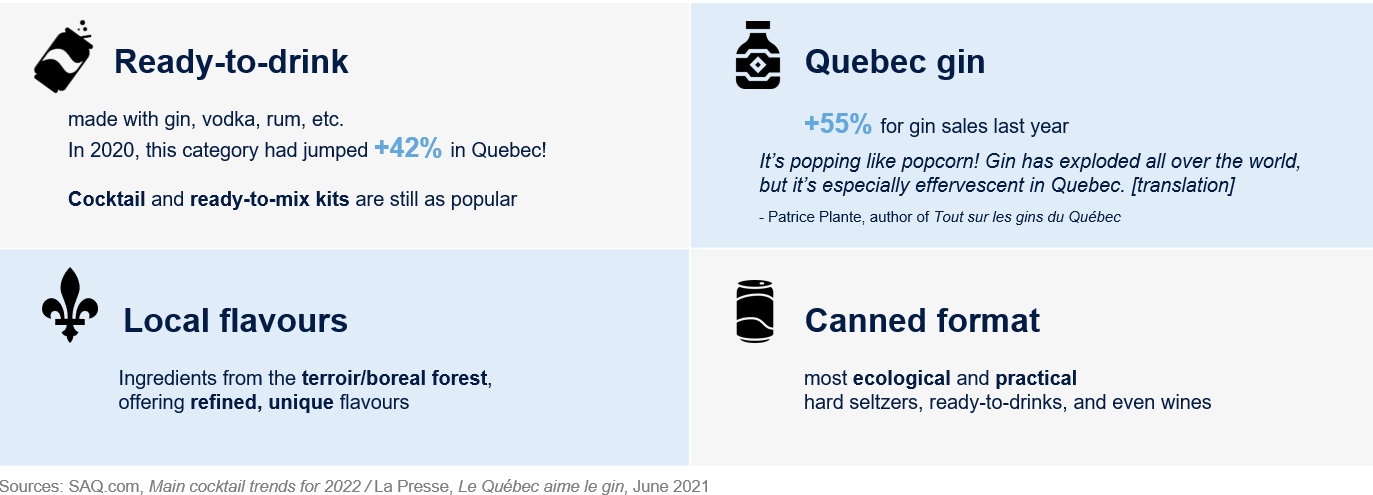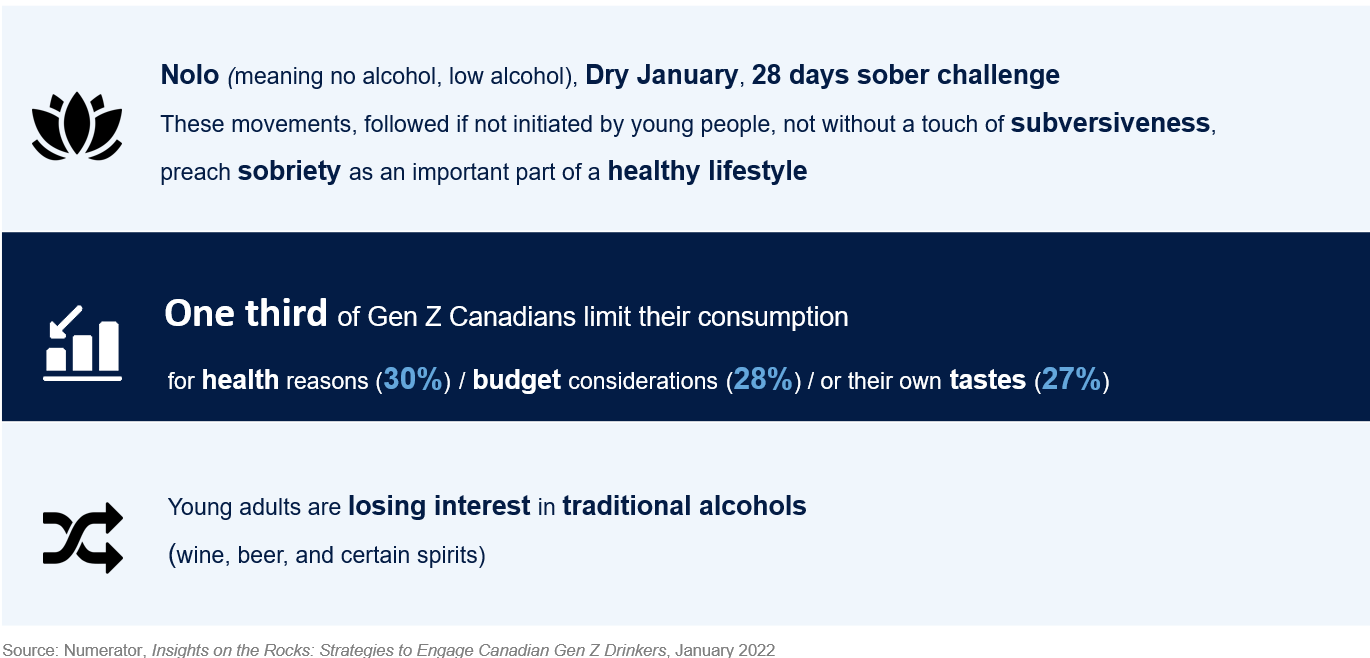Business shaken, stirred with moderation
The alcoholic drink offering has exploded these past few years. The province was transformed into a true experimental, innovative, and creative lab. And the number of SMEs in the sector has reached new heights, with:
– 296 microbreweries on the territory (2x more than in 2015);
– 200 varieties of Quebec gins available at the SAQ—10x more than in 2018!
What are we drinking in 2022?
Lighter, less sweetened drinks made with natural ingredients
There are now so many distillers, microbrewers, and other winemakers that the local market is no longer enough. To ensure their growth, several look internationally, such as Gaspésie’s Pit Caribou, currently planning their launch in Europe and Asia.
Raising a glass differently
Alcohol consumption has been steadily decreasing year after year. Some products are more affected by this decline than others. In 2020, Quebecers drank an average of 77.4 litres of beer—a record low since 1950! And the trend continued despite the pandemic: while 14% of Quebecers say they’ve increased their consumption in this period, 16% of them have decreased it.
For young adults, alcohol is no longer a given
Manufacturers adapting quickly
With store shelves lined with non-alcoholic drinks, the non-alcoholic trend is hard to ignore. And anything goes: ready-to-drinks, spirits, ciders, and wines—there’s an alcohol-free version for every possible drink.
And to top it off, a large part of this offering was created by local producers. Noroi distillery in Saint-Hyacinthe found a unique way to infuse flavours into its non-alcoholic rums and whiskies. And giants are also joining in: in order to grow once again, Molson Coors is expanding its offering with a cannabis-infused non-alcoholic drink.
Cheers!
Additional sources: Association des microbrasseurs du Québec, January 2022 statistic / La Presse, Pit Caribou lorgne le marché européen et asiatique, March 2021 / Le Journal de Montréal, La bière n’est plus à la mode, July 2021 / Educ’Alcool, Inversion de la tendance d’augmentation de la consommation, mais hausse de la consommation excessive, October 2021






